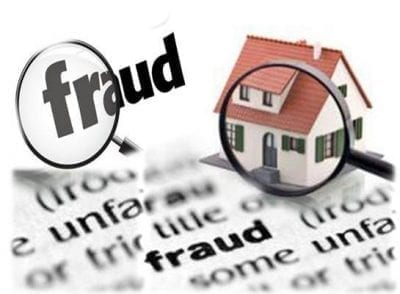Mortgage Fraud

Today I came across an article about mortgage fraud and it captured my attention. Our digital identities are increasingly falling into the hands of the bad actors. Scheme after scheme of elaborate financial fraud tactics, techniques and procedures are seemingly around every corner. Our most confidential information is becoming routinely stolen, hijacked and held up for ransom at ever increasingly alarming levels. No longer are your online bank accounts at risk, or your medical information exposed, now you have to worry about your home ownership as well!
Mortgage Relief Scams
There are multitude of scams out there around mortgages and many of them attempt to trick unsuspecting individuals to give out sensitive or confidential information through a phishing email, telephone call or even through the US Mail. They are often soliciting a certain amount of money for the task of making changes to your mortgage loan on your behalf. They often ask for money up from as a “down payment” for their services. Don’t be fooled! Check out this great and valuable article about Mortgage Relief Scams on at the Federal Trade Commission website.
Although these types of scams can be successful, then likely receive very little money paid out. So, in order to be successful, the cyberthieves need to conduct many scamming campaigns against large populations of people. It is a numbers game for them. Hypothetically, each scam may only net a few thousand to dozens of dollars whereas, mortgage fraud involving the title of a home, can net the thief potentially millions of dollars! One successful attack can net the cyberthief the entire value of the home. Imagine if that was YOUR home! What would you do? How can you prevent it from happening in the first place?
Mortgage Fraud Targeting the Elderly’s Home Equity Wealth
The newest, and most alarming is the increasing tactics and techniques of criminal actors that use forgery, identity theft and data theft to target elderly homeowners and steal the deed to the home fraudulently. The cyberthieves conduct reconnaissance to identify potential elderly targets through public record searches or purchasing stolen information from Darkweb marketplaces. They prefer to target properties that are owned, but not occupied, such as abandoned or investment properties.
How Does Mortgage Fraud Work?
Once the cyberthieves have their target, then conduct an elaborate scheme that unfolds in two possible scenarios:
- The cyberthieves will typically refinance the home with a new mortgage lender and then sell the property to unsuspecting buyers and keep the proceeds.
- They may transfer the property to a separate company that the cyberthief has control over and then mortgages the property.
The cyberthieves are sophisticated enough to hire individuals to answer verification requests from lenders as well as hiring lawyers to act as settlement agents at closings. The unsuspecting elderly homeowner oftentimes does not find out about this fraud until months after the deed has been transferred to the name of the cyberthief, the mortgage loan is closed and the cyberthief gets away with the proceeds. The homeowner typically learns about the fraud after they have received a notice to vacate from the county sheriff, or receives a notice of foreclosure, or a notice from the local property tax office when the homeowner tries to pay their property taxes.
Here is a good article provided by the FBI that describes this scheme along with other mortgage fraud schemes. Also, there are several new companies providing a type of identity theft service for home mortgage fraud.
Don’t fall victim to these types of scams. Stay alert, learn about how the scams work and take measures to protect yourself and your property.
Contact us at 2Bware for more information about how our Next Generation Security Awareness Program can transform your business.
